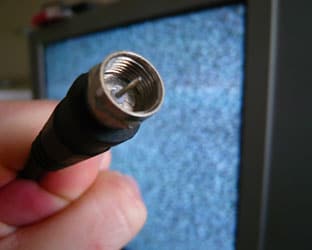The Mid-Atlantic Sports Network has pled discrimination at the hands of Time Warner Cable systems in North Carolina over the failure of TWC to put its channel on a so-called analog tier in the majority of NC DMAs it serves. Now, even though MASN won a decision in arbitration that was upheld by the FCC’s own Media Board, the FCC is instead awarding victory to TWC, with Commissioner Michael Copps dissenting.
TWC had asked for review after losing the decision of the American Arbitration Association and the MB, and the FCC agreed that the decision was erroneous. The FCC said that TWC adequately explained its reasons for denying access to its more popular programming tiers to MASN.
In case you were wondering, the FCC explained in a footnote that it is not bound by any decision from an arbitrator or of its own Media Bureau when reviewing an issue such as this.
At question is MASN’s provision of baseball games of major league teams including the American League’s Baltimore Orioles and the National League’s Washington Nationals.
MASN claimed it was being treated unfairly when denied access to the more popular tiers.
TWC countered that even though Major League Baseball counts North Carolina as territory of the two teams in question, that does not mean that they are particularly popular in North Carolina, and produced statistics to show that the in fact are not popular. Coupled with the expense of carrying the network, TWC said it was within its rights to relegate the service to a more expensive tier.
In fact, the FCC said that TWC was clearly correct, to the point that it did not need to consider many of the issues that had been tied to the case, saying, “we find that TWC prevails because it has established legitimate reasons for its carriage decision that are borne out by the record and are not based on the programmer’s affiliation or non-affiliation.”
Viewship statistics and MASN rates were entered into evidence as the case was heard, but were redacted from the FCC release.
Commenting on the proceeding, Copps said, “The arbitration process was duly followed upon complaint from the MASN network that Time-Warner had engaged in program carriage discrimination against it. MASN prevailed on the merits. The arbitrator found that Time Warner had indeed engaged in unlawful discrimination by refusing to carry MASN on an analog tier. In fact, two arbitrators found discrimination against MASN. In 2008, our Media Bureau agreed with these findings. I find no compelling evidence or rationale in the Memorandum Opinion and Order currently before us to reverse the findings of the two arbitrators and the 2008 Media Bureau decision. I therefore am compelled to dissent.”




